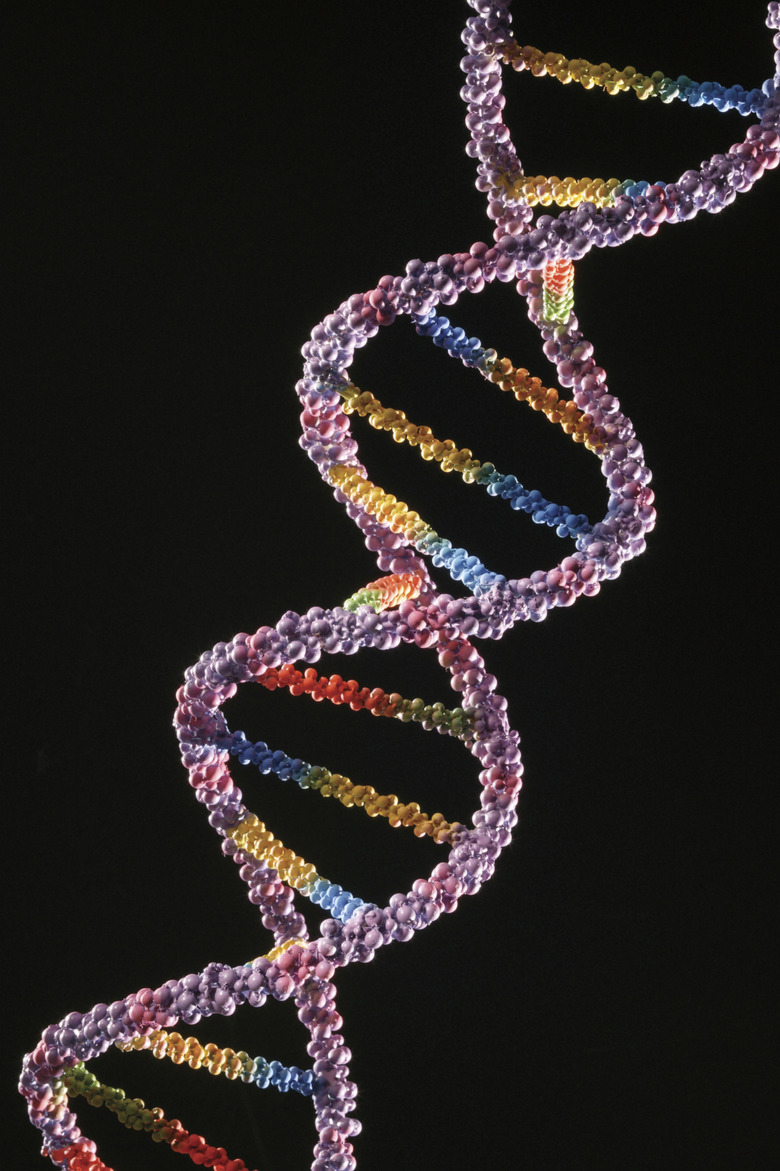How Does DNA Replication Affect Your Body?
The purpose of DNA replication is the creation of accurate copies of DNA in a cell. After replication is complete, the cell divides, forming to two identical daughter cells. This process is important for the replacement of damaged or dead cells as well as for the proper formation of gametes needed for fertility. In fact, the importance of DNA replication is difficult to overstate. Errors in DNA replication can lead to diseases, including cancer, an important topic in the area of replication biology.
TL;DR (Too Long; Didn't Read)
DNA replication is essential to virtually all your body's biological functions. Errors in replication can lead to serious diseases.
DNA Replication
DNA Replication
DNA replication is the copying of DNA within the nucleus of a cell so that two full copies are present. This occurs before a cell divides. Two copies of a cell's DNA need to be present before a cell divides so that each of the resulting two daughter cells will each have one full copy of the cell's DNA. Any errors in the replication process can result in the two daughter cells receiving slightly different copies of the DNA.
Cell Division
Cell Division
Cell division and DNA replication are controlled by the cell cycle. During the cell cycle, cells grow, replicate their DNA, undergo more growth, and divide. The cell cycle is necessary for replacing dead or damaged cells. It is especially important in tissues that have a high turnover of cells, such as skin and hair. The cell cycle cannot progress and cells cannot divide without the completion of DNA replication.
Meiosis and Fertility
Meiosis and Fertility
Meiosis is a specialized type of cell division that results in gametes, or sex cells. Gametes are unique cells because they contain only one of each of the cell's paired chromosomes, while all other cells in the body contain two of each. This is necessary because when gametes fuse during fertilization, the resulting zygote must contain two of each chromosome — one from the mother and one from the father. Meiosis begins with the replication of DNA and division of a germ cell — at this stage, just like mitosis. The resulting daughter cells then each divide again, with the pairs of chromosomes segregating into the new daughter cells. Proper replication of the DNA is therefore required for gamete formation and fertility.
Replication Errors
Replication Errors
Errors can occur during DNA replication, resulting in the wrong DNA nucleotide being incorporated in the new copy of DNA. Although these errors can be harmless, they can also cause serious mutations, leading to the creation of mutated proteins. These mutated proteins can cause disease, depending on whether the mutation causes a change in the function of the protein. A mutation in a gene that regulates cell growth and survival and can cause cancer, allowing cells to grow and multiply unchecked.
Cite This Article
MLA
Thompson, Noelle. "How Does DNA Replication Affect Your Body?" sciencing.com, https://www.sciencing.com/dna-replication-affect-body-9076/. 25 July 2018.
APA
Thompson, Noelle. (2018, July 25). How Does DNA Replication Affect Your Body?. sciencing.com. Retrieved from https://www.sciencing.com/dna-replication-affect-body-9076/
Chicago
Thompson, Noelle. How Does DNA Replication Affect Your Body? last modified March 24, 2022. https://www.sciencing.com/dna-replication-affect-body-9076/
